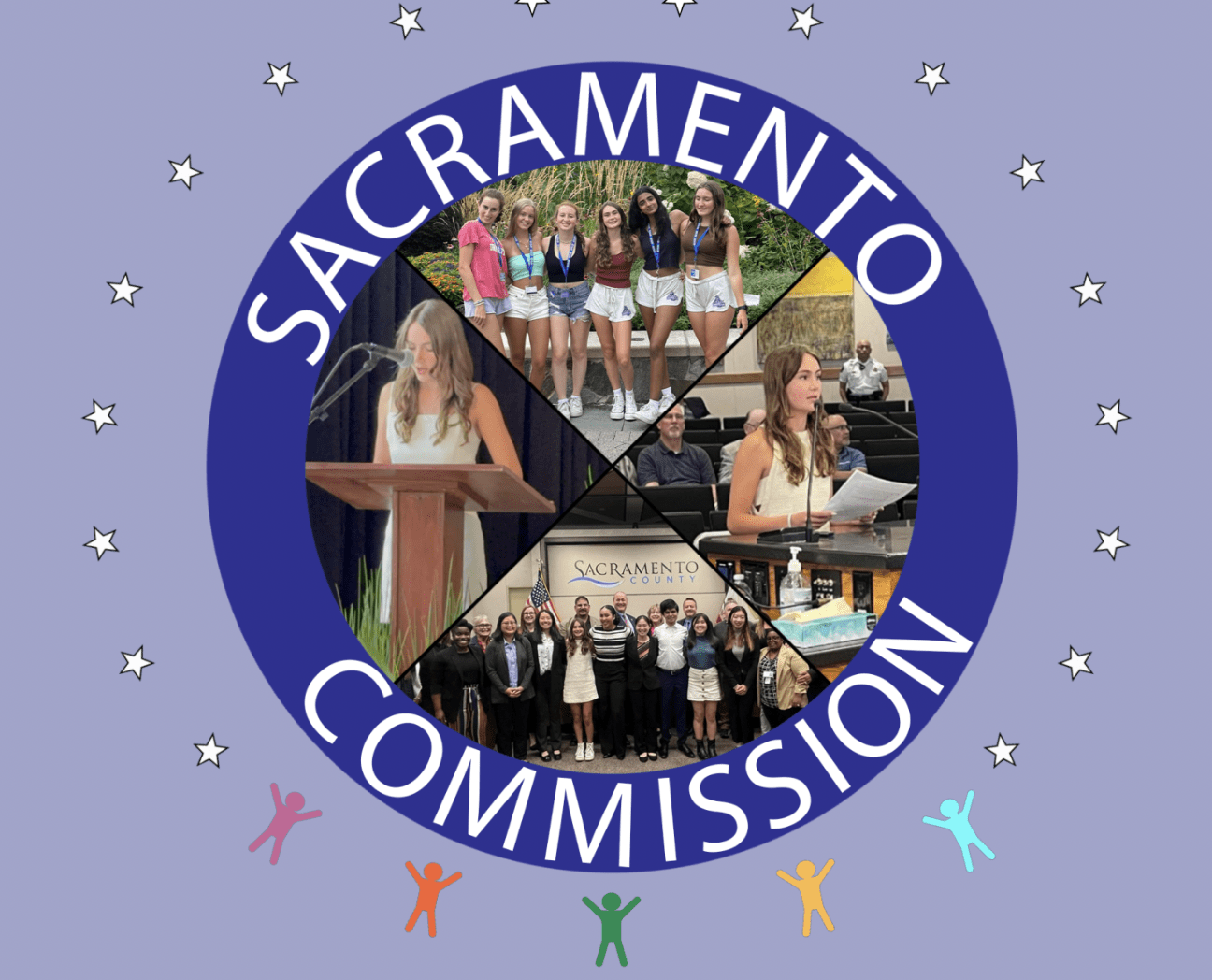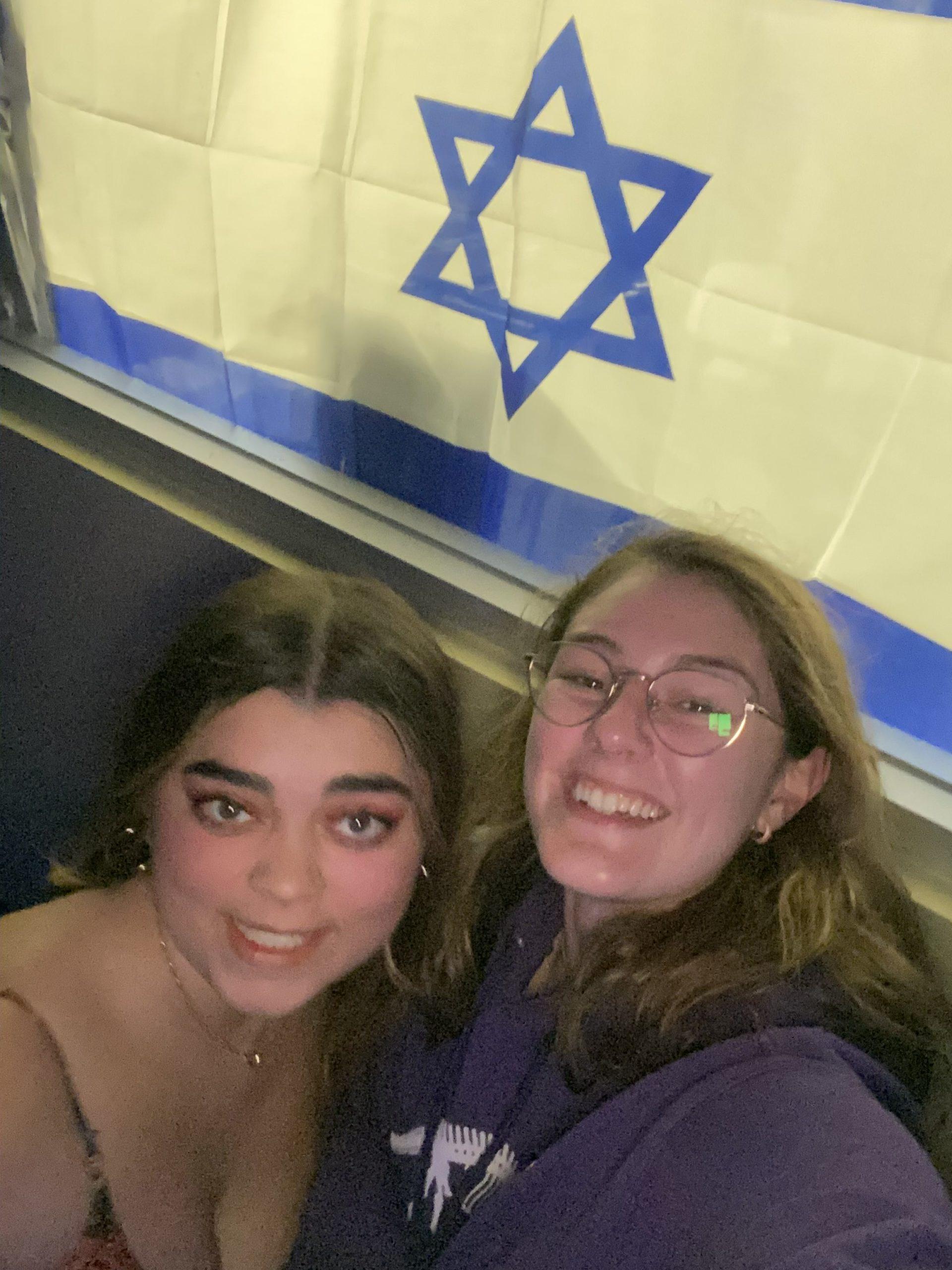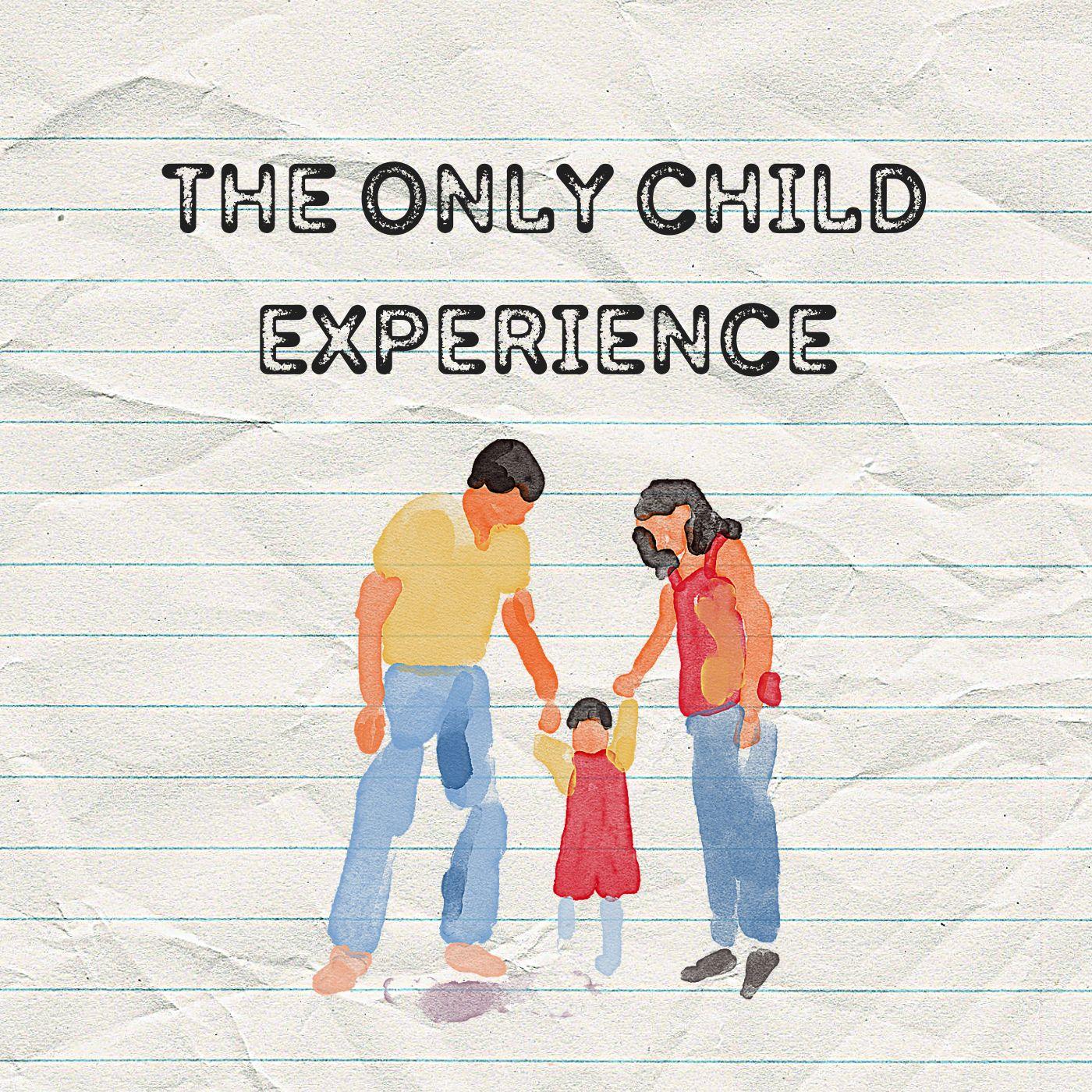A cycle of never-ending projects, presentations and persuasion. Three leadership commissions, one girl. Freshman Diana Haus advocates and spreads awareness about environmental health, domestic violence and the struggles of women and girls throughout Sacramento County.
Starting in the seventh grade, Diana landed her first internship for the Sacramento County Youth Commission (SCYC).
SCYC is an organization made to collectively identify the issues faced by Sacramento County youth, effectively voice those concerns and plan events that help young people. It also aims to connect Sacramento youth with the Sacramento County Board of Supervisors.
“I joined because I wanted to help make an impact in my community, and I was looking for ways that I could do that at a local level,” Diana said.
One summer later, at the beginning of ninth grade, Diana started a large project with the Sacramento County Youth Commission (SCYC), aiming to bring awareness to environmental issues in Sacramento.
The SCYC consists of 15 youth appointed by the Board of Supervisors to be a voice for youth in local government. They get assigned a district to help improve their struggles.
“My job is to advocate for these for the use of District 3. And so the subcommittees that I’m joining are the ones I think need the most work for District 3,” Diana said.
District 3 consists of the urban union incorporated communities of Carmichael, Fair Oaks, North Highlands, Rancho Cordova, Gold River and Sacramento neighborhoods in the city of Sacramento.
“Our mission is looking for different school districts in Sacramento and identifying which ones have gardens, and then we’re going to help maintain and encourage more students to be involved in things like composting,” Diana said.
Her goal is to host school-wide events in various districts to educate younger generations about the importance of gardening and its local impact. She has already contacted many schools in hopes of spreading awareness.
As she waits for the responses, Diana is closing up her domestic violence awareness campaign.
“We launched it at the beginning of the school year, so we have about one week left of the campaign,” Diana said.
Partnered with Building Futures, her domestic violence awareness campaign was created by her safety subcommittee.
Building Futures mission is to help house underserved individuals struggling with domestic violence.
“We’re working with Project emPower to try to put a self-defense class in all K-12 schools,” Diana said.
Project emPOWER is a movement to teach self-defense training to ensure that students are better equipped to deal with bullying and violence.
She raises domestic violence awareness through social media campaigns and reports the gathered data at each committee meeting.
“One of the things we’re also thinking of doing is adding a domestic violence hotline to the back of the student ID,” Diana said.
She would also like to add second languages in addition to English on the back of the student ID cards according to the second most common language spoken in the districts.
“For some areas in the Bay Area, we might add Mandarin, whereas in Sacramento, we might add Spanish,” Diana said.
She tries her best to provide possible solutions for the people in need.
“Public advocacy has always been my passion because I enjoy helping the community and bringing people together.”
Looking forward, Diana also started to work with the Youth Leadership Academy (YLA).
The YLA is part of a non-profit organization called Plan International that specifically helps with the struggles of women and girls.
“We each get our own leadership project, which is a project that we place in our own community,” Diana said.
Her current project is called Solving Water Inequalities Mission (SWIM), which works to improve access to public pools in lower-income areas.
Public pools in Sacramento have been slowly closing over time, primarily in minority communities. This has led to an increase in drowning rates within the past few years.
Diana spends her day researching the root of the problem while sending out surveys trying to get the community to communicate with her. In addition, she reaches out to city council members and commissioners in hopes of being able to present to them one day.
“Talking to people in the community while working on these projects has affected the way that I think about my life and how everyone has different lives,” she said.
Diana is determined to find government funding to re-open previously closed down pools, or to construct new ones.
“I just want to work with the community stakeholders to find potential solutions.”
Freshman Malena Lindenau is a close friend of Diana’s, and said Diana will always advocate to make others’ lives easier.
“In sixth grade, Diana noticed that it was awkward for girls to ask for period products, so she had us write a letter to the middle school principal,” Lindenau said.
Sherry Haus, Diana’s mother, said that Diana has always wanted to help people, even when she was younger.
“I remember it was a rainy Sunday and she made me drive her around the whole perimeter of her district because she wanted to get a sense of it and see what it all was.”
Their district included a variety of urban wealthy neighborhoods and low-income rural neighborhoods.
“We were driving and she was talking about how she was concerned that kids at lower-income schools wouldn’t be represented,” Sherry said. “Diana’s passion for helping others formed her pathway to success.”
However, Diana often finds it difficult to find people who are willing to listen to her.
“People don’t tend to take young people seriously.”
One of the main reasons she decided to join the commissions was because there was always someone to back her up and make sure that she was listened to, she said.
Moreover, these challenges have made her stronger as a person through public speaking, awareness and time management.
“I am excited to see what the future brings me as an advocate for youth and to see how I can help further in the future.”
— By Lillian Wang



